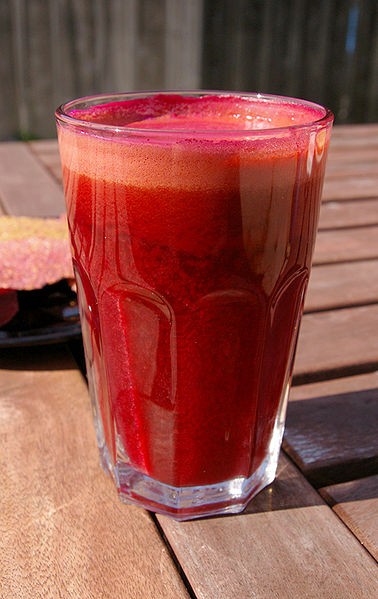
Drinking a glass of beet juice each day may significantly lower high blood pressure, according to a British study.
Beet juice is a good source of inorganic nitrate. Inorganic nitrate refers to the chemical make-up of the nitrate, in this case not to how the beets were grown. The body converts nitrate to nitric oxide, which is known to lower blood pressure.
This finding comes from a randomized double-blind study where 68 patients with high blood pressure were assigned to drink either 8 ounces of beet juice or 8 ounces of beet juice that had been specially prepared to be nitrate free. They drank juice daily for 4 weeks and then stopped for 2 weeks.
Blood pressure was measured at a clinic, with a 24-hour blood pressure monitor, and at home. Clinic blood pressure was reduced by an average of about 8/2.4 mm Hg, 24-hour blood pressure was reduced by an average of about 8/5 mm Hg, and home blood pressure was reduced by an average of about 8/4 mmHg in the patients who drank the beet juice with nitrate. After the patients stopped drinking beet juice, their blood pressure returned to the previous levels. Patients who drank nitrate-free beet juice saw no change.
Beneficial changes in blood vessel dilation and a reduction in arterial stiffness were also seen in the patients who drank the beet juice with nitrate.
These decreases are significant. Drugs to treat high blood pressure usually lower it by an average 9/5 mmHG. This is the first evidence that blood pressure can be reduced by adding nitrate to the diet.
"This research has proven that a daily inorganic nitrate dose can be as effective as medical intervention in reducing blood pressure and the best part is we can get it from beetroot and other leafy green vegetables," said Amrita Ahluwalia, lead author on the study.
The study was what is called a phase 2 clinical trial, which means that a larger trial will usually be conducted. It conducted at the William Harvey Research Institute at Queen Mary University of London. It was published in the journal Hypertension.

